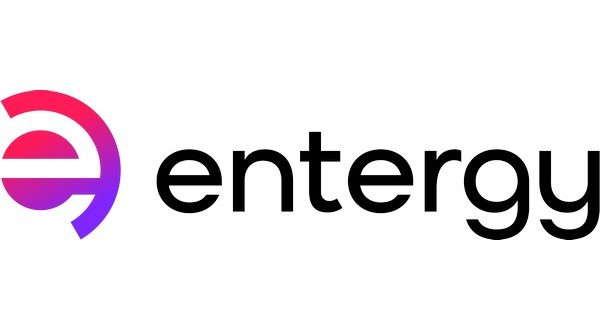
Federal regulators have ruled that Entergy Corp. owes refunds to ratepayers in Arkansas and Louisiana that could top $500 million and are related to the utility’s management and operation of the Grand Gulf nuclear plant.
The Federal Energy Regulatory Commission (FERC) issued two rulings Friday in a dispute over how Entergy and its subsidiary, System Energy Resources Inc. (SERI), set rates for customers in Arkansas, Mississippi and Louisiana to operate the Port Gibson, Miss., plant, which supplies power to all three states.
According to the Arkansas Democrat-Gazette, Entergy issued a news release Monday stating no refunds are due customers.
However, the Louisiana Public Service Commission released a statement Wednesday contending the commission’s ruling upholds previous federal regulatory decisions that would deliver millions of dollars to Entergy customers in Arkansas and Louisiana. “About $160 million would be due to Entergy Louisiana customers, $190 million to customers served by Entergy New Orleans and $241 million to Entergy Arkansas customers,” the Louisiana commission said in the statement.
Arkansas Public Service Commission spokesman Jeff Hilton said Wednesday, officials familiar with the ruling could not be reached for comment and that the commission rulings are under review.
“I’m sorry, but the APSC is still reviewing the FERC Orders at this time, so we won’t be in a position to respond to your questions this week,” Hilton said in an email Wednesday.
Louisiana officials were more forthcoming.
“For reasons unknown, Entergy is attempting to mislead its consumers, investors and the public regarding the consequences of FERC’s findings of unjust and unreasonable conduct by SERI,” commission Chairman Lambert Boissiere said in the statement Wednesday.
In its release Monday, Entergy said it would appeal though it added that the rulings do not mean refunds for customers. Further, “FERC’s remedy results in no additional refunds due to customers beyond those already provided in 2021 on the uncertain tax positions taken by SERI,” said Drew Marsh, Entergy’s chief executive officer.
Part of the dispute between the utility and state regulators is over Entergy’s accounting procedures for the Grand Gulf operations.
Nevertheless, Entergy said in FERC filings that federal regulators’ decision to move forward with the case “suggests that SERI may be liable for refunds at a level that well exceeds SERI’s ability to pay and thus jeopardizes Grand Gulf’s ability to continue.”
In addition to the tax dispute and disagreements over rates and a cost-recovery formula for the nuclear plant, shutdowns that cost money for ratepayers have plagued Grand Gulf since the plant opened in 1985.
Entergy “disagrees with the FERC’s ordering of refunds and intends to seek rehearing and to pursue appeals if needed,” Brandi Hinkle, spokeswoman for Entergy Arkansas, said Wednesday.
Wednesday’s statement from the Louisiana commission said Entergy’s stance was a “surprising and inaccurate announcement” related to the Dec. 23 Federal Energy Regulatory Commission ruling.
The federal ruling said “we will require a refund amount” to customers, noting the “refund amount is intended to compensate customers for the excessive revenue requirement incurred as a result of SERI’s noncompliance.”
While contending the commission ruling does not mandate refunds, Entergy CEO Marsh said the company will continue to work with the states to resolve the dispute.
“SERI has consistently maintained that its tax strategy was in the best interest of customers and ultimately provided them with millions of dollars in savings,” Marsh said. “We are committed to working with our regulators to resolve outstanding FERC issues for the benefit of our customers.”
In 2021, System Energy Resources Inc. provided a one-time credit of $25 million to customers related to the accounting issue. “Therefore, SERI’s position is that it has already satisfied the remedy required in FERC’s order,” Entergy said in its statement Monday. “We therefore calculate the remaining refund for the uncertain tax positions issue to be $0.”
Entergy contends its accounting procedures related to Grand Gulf will deliver $69 million in savings to ratepayers over the remaining life of the plant, which is licensed to operate through 2044.
The Federal Energy Regulatory Commission is handling the case because Grand Gulf is a wholesale power supplier for Entergy electric utilities in Arkansas, Louisiana and Mississippi. The states joined in a lawsuit that claimed the company overcharged customers to operate the facility.
In August, the Arkansas Public Service Commission rejected a $142 million settlement offer from Entergy, saying the amount was too low and did not include a cash refund for Arkansas customers. Louisiana regulators also have declined Entergy’s settlement offers.
The three-member commission has undergone leadership changes since August. Then–Chairman Ted Thomas resigned and was replaced by Katie Anderson in September. Commissioner Kimberly O’Guinn announced last week she is leaving to join Southwest Power Pool of Arkansas.
The Mississippi Public Service Commission in July accepted a $235 million settlement, which Entergy valued at $300 million because the company agreed to hold off rate increases that were planned for 2023. Mississippi ratepayers will receive either an $80 payment or account credit under the agreement and the state commission also said the money would offset potential natural gas price spikes.
Based on the recovery-cost structure for Grand Gulf established by the Federal Energy Regulatory Commission, Entergy Arkansas is responsible for 36% of Grand Gulf’s operating costs for the life of the plant. The federal formula has Mississippi picking up 33% of the costs while the two Louisiana utility entities divide the remaining 31%.
Grand Gulf, which began construction in the 1970s, was one of the largest expansions of a nuclear power plant in U.S. history. In 2012, an upgrade made it the largest single-unit nuclear power plant in the country and fifth largest in the world.
WebReadyTM Powered by WireReady® NSI










